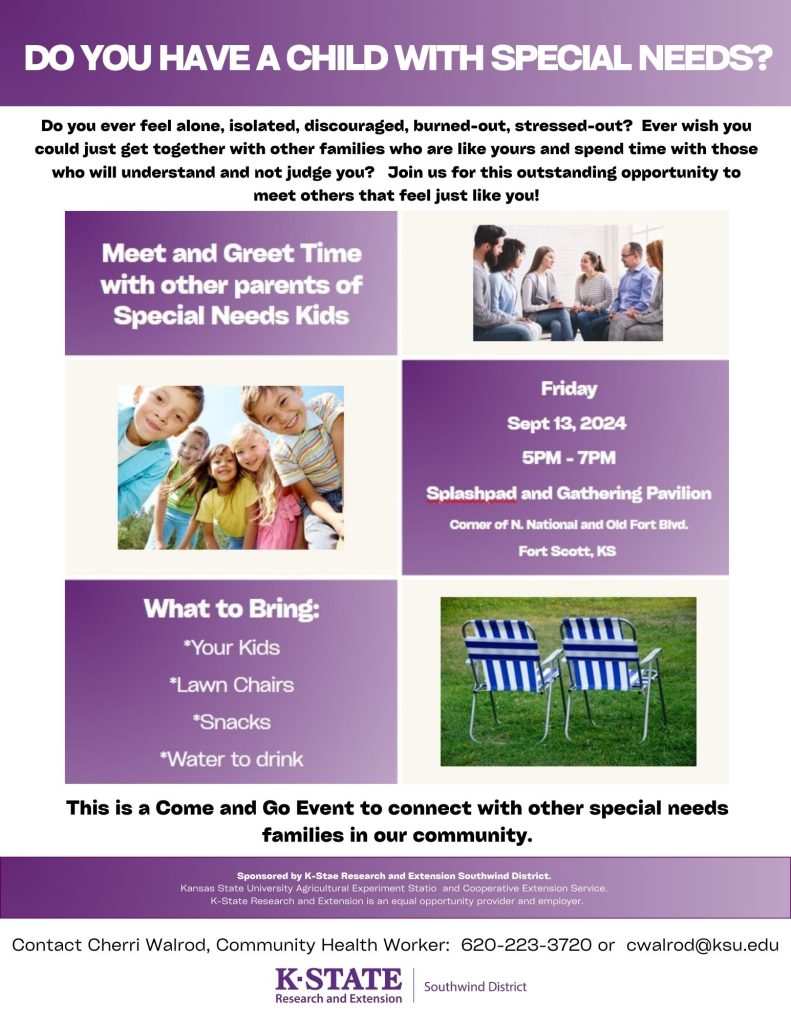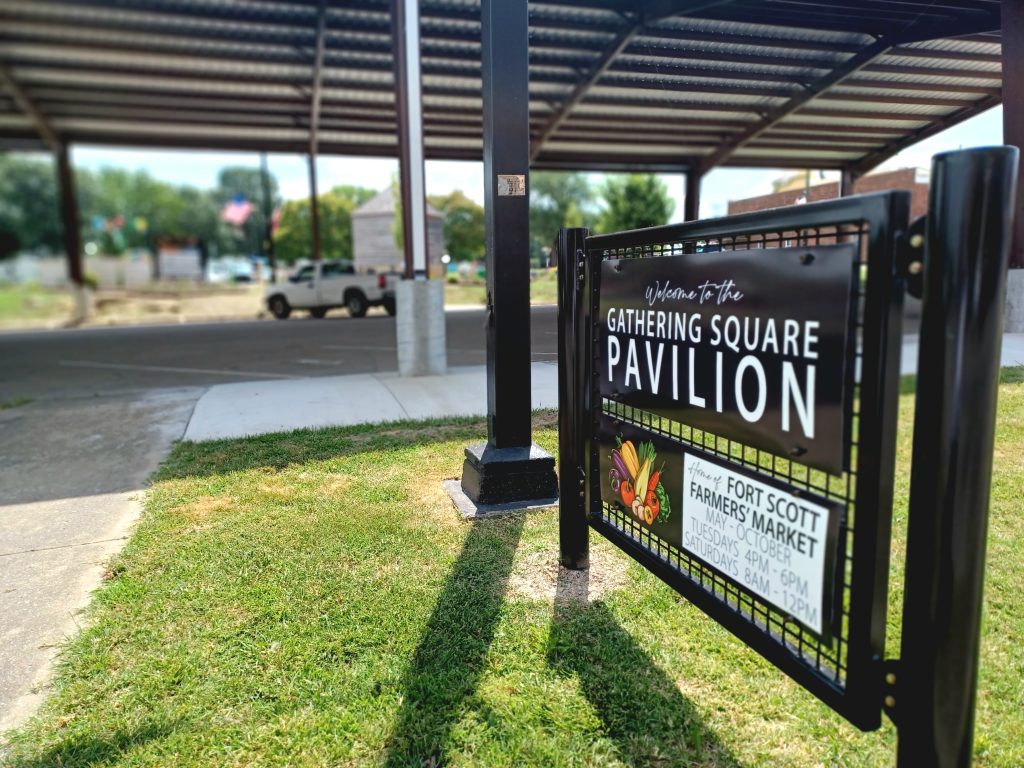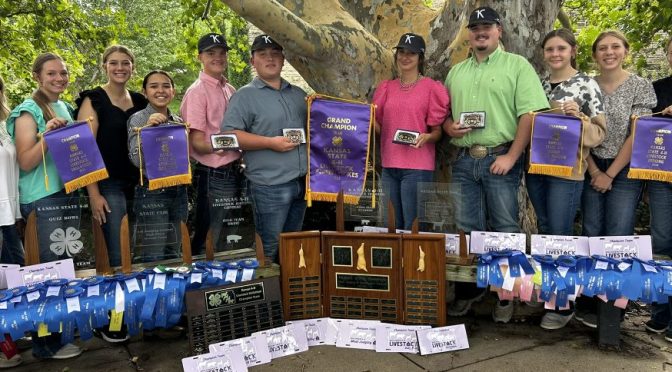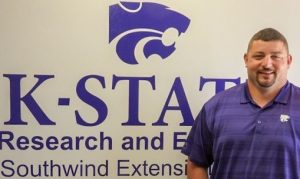Category Archives: K-State Extension
Add Bulbs to the Landscape Now for Big Color in the Spring
Bulbs are a good addition to any landscape or garden because they offer a variety of bloom color, flowering time, plant height and shape. From the end of September to the first of November is the time to plant spring flowering bulbs. Spend some time thinking about the location you intend to plant before making a purchase. So many times we buy on impulse and then have to really squeeze plants into a spot that may be less than desirable!
Bulbs can be planted in a variety of locations including around house foundations, under deciduous shrubs and trees, along borders, in perennial beds and rock gardens, in containers and even on steep slopes.
When planted along a foundation, bulbs will add color in the early spring if planted in a grouping of twelve or more bulbs. If you have evergreen shrubs planted along a foundation, they will provide a nice background for planting of bulbs. Bulbs will “pop” with color in contrast to the green of the shrubs.
Spring bulbs can be planted under deciduous shrubs or small trees. You may be wondering how this can be because of a lack of sunlight. Early blooming bulbs receive plenty of light because they start growing long before trees and shrubs start to develop leaves. Some bulbs that do well in this type of setting include grape hyacinths, crocus, bluebells and early maturing daffodils.
A border of bulbs planted along the edge of the lawn will add a splash of color to the lawn area. Or consider planting low growing bulbs around the edge of a flower bed to add interest. You can add them directly into a perennial bed and the bulbs will bloom in March, April and May before perennials start to grow. Make sure to locate the bulbs so the dying foliage will not be noticed.
For steep slopes that are difficult to mow and maintain, bulbs with a fiberous root system such as daylilies, are an effective plant to use. The foliage is attractive and the bloom adds color to the area. The problem of trying to mow a steep area will be eliminated.
Both spring and summer bulbs can be planted in portable containers. The nice thing about container plantings is their versatility. For spring bulbs, once bloom is past, the container can be moved to a location out of sight while the foliage matures. Summer bulbs will add color all summer long to areas such as a patio or deck.
Keep in mind that planting bulbs of one variety or color in mass will have greater visual impact. This will provide uniform color and texture that is pleasing to the eye. With bulbs such as tulips or daffodils, plant at least twelve bulbs of one variety in a grouping. Smaller bulbs should be planted in groups of fifty to have visual impact.
Krista Harding is a K-State Research and Extension Agricultural agent assigned to Southwind District. She may be reached at [email protected] or 620-244-3826.
K-State Research and Extension is an equal opportunity provider and employer.
Parents: Help Your Kids Have a Healthy Relationship with Social Media

Social media brings both advantages and drawbacks, with particular concerns for young people. U.S. Surgeon General Vivek Murthy highlights in his Advisory on Social Media and Youth Mental Health that children aged 10 to 19 are in a critical stage of brain development. During this time, their sense of identity and self-worth is still developing. They are also more emotionally sensitive, prone to peer pressure, and likely to engage in risky behaviors they might otherwise avoid.
More research is needed to see if social media is the direct cause of mental health issues but we shouldn’t ignore the correlations. Parents can take practical action now to help protect our youth.
- Set guardrails early. Setting ground rules before giving kids a smart phone can set you up for success. Examples include making certain rooms technology-free or limiting use to certain times of day. Delay social media use until 16.
- Navigate and strategize together. Have an open, non-judgmental conversation about social media. Explore what they enjoy, share any challenges you face, and work together to establish guidelines, such as deciding when to take breaks, adjusting privacy settings, or considering which platforms to avoid.
- Have an ongoing conversation about needing to put real-life effort into forging meaningful relationships.
- Work with teens to choose appropriate privacy settings for their social media. Social media sites provide tools for parents on how to set privacy settings. You can also visit Common Sense Media – the “Parents need to know” section – provides everything you need to know about social media, how different apps work, and how to set privacy controls.
- Be clear about what is unsafe to post: full name, address, specific places they go, phone numbers, vacation plans, or anything else that would help someone identify or locate them.
- Not allowing teens to sleep with their cell phone nearby. When teens are always connected, their rest will be interrupted.
- Monitor for any behavioral changes that could be linked to internet use. Look out for signs such as increased secrecy, spending excessive time online, and withdrawal from friends, schoolwork, or previously enjoyed activities.
- Make sure your teen knows they are loved unconditionally and can come to you with any problem. Engage with your child by joining them in an activity you both enjoy, like watching a baseball game or playing a video game. Use this shared experience as a starting point for meaningful conversation.
Today’s article was adapted with articles by the Greater Good Science Center and University of Minnesota Extension. For more information contact Tara Solomon-Smith, [email protected], or call 620-244-3826.
# # #
Kansas State University Agricultural Experiment Station and Cooperative Extension Service
Cool Season Grass – Tips for Fall Fertilization and Overseeding
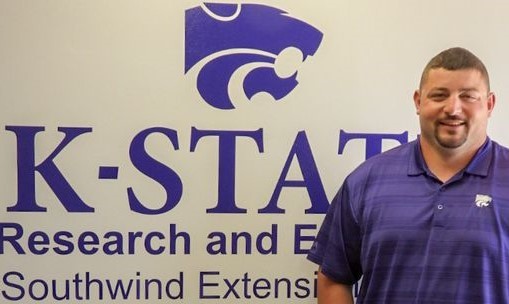
In the last week or so, I’ve had many calls about fall fertilizer applications on fescue and brome pastures and meadows. Much of the nitrogen (N) applied to tall fescue and smooth bromegrass hay meadows and pastures goes on in January or February in eastern Kansas but fall is the best time to apply phosphorus (P) and potassium (K) for the spring growing season. The amount of N-P-K depends heavily on forage use such as grazing vs haying.
Normal N fertilization rates for established fescue and bromegrass hay fields are 90 to 120 pounds actual N per acre, or about 30 pounds of N per ton of expected yield. A summary of K-State N response data shows the average yields for unfertilized brome and fescue were about 1.4 tons of hay per acre, while maximum yields averaged 3.2 tons of hay with 140 pounds of N. Protein levels will also be increased at the higher N fertilizer rates, assuming timely harvest. In cases where producers are relying on high-quality hay as their primary protein source, they will want to push N rates to the upper end of the recommended range.Timing of N application is another factor to consider. While most growers apply all the N and any needed P and K for hay production in a single application in the spring, research in Kansas has shown that applying all the fertilizer in the fall will normally result in slightly higher yields, though the protein values will normally be slightly lower. Prior K-State research indicates that smooth brome responded to spring applications as late as April without effects on tonnage of dry matter produced and significantly greater crude protein levels than fall applications. Fall applications of N and P stimulate root growth and produce more tiller buds, resulting in more stems the following spring. Under normal conditions, tall fescue and smooth bromegrass pastures that are grazed in both spring and fall should receive about 100 pounds total N per acre, with 60% applied in the winter or early spring and 40% of the N along with any needed P and K in late August or early September. So, producers should plan on applying 60 to 70 lbs N per acre in late winter or early spring, starting as early as January in southeast Kansas or February in the central and northern parts of the state.
Both smooth bromegrass and fescue are efficient users of soil P and K. One of the reasons for this is the dense root system — two to three times more roots per unit of soil volume than corn or soybeans. As a result, these crops can grow and thrive at lower soil test levels than other crops commonly grown in Kansas. But both smooth bromegrass and fescue do remove about 12 pounds of P2O5 and 40 pounds of K2O per ton of hay, which will lower soil test values. Thus, these grasses will respond to P and K fertilization on soils with low or very low soil test levels. Recent work in northeast Kansas has shown response to applied P at soil test levels below 12-15 ppm. P and K application rates should be based on soil tests, as with most crops. In any type of fertilizer management program for tall fescue and smooth bromegrass, whether for hay production or grazing, needed phosphorus and potash should be applied in the late summer or fall for best results, along with a light application of N. Research with smooth bromegrass and fescue production has shown that fall applications of N and P, while these cool-season grasses are still actively growing, will help the grass develop a good root system for the winter, and develop buds for new tillers the next spring. P and K applied in late winter or early spring won’t provide the same benefits. One option for hay production not widely used is to apply all the N, P, and K needed for the following year in late fall, rather than early spring. Research has shown that the yields from a late- fall application are actually higher than from an early spring application, but the protein levels in the hay are slightly lower (a dilution of the N due to higher biomass production). The increased production from a late fall application is due to the stimulation of root growth and production of additional tiller buds.
One additional nutrient producers should be aware of for tall fescue and smooth bromegrass pastures or hayfields is sulfur (S). If the pasture or hayfield is receiving adequate nutrients and precipitation, but is dropping off in production, it could be deficient in S. Sulfur deficiency will cause a general reduction in forage production long before it results in visual deficiency symptoms. An application of S to a tall fescue or smooth bromegrass pasture or hayfield that is deficient in S can result in forage yield increases up to 500 to 800 lbs per acre. Sulfur is taken up by plants as sulfate. If a sulfur application is needed to correct a deficiency in a growing crop, a sulfate-S source should be used, such as ammonium sulfate or gypsum. Elemental sulfur sources can be used if applied far enough in advance of crop uptake needs to allow soil organisms to oxidize the S to sulfate. This will normally take several weeks to months, depending on soil temperature and moisture.
To determine whether P, K, S, and lime are needed on tall fescue and smooth bromegrass fields, producers should consider soil sampling. The best time to sample is in the fall, prior to fertilizer application. However, soil testing can be done in the spring. Samples for a P and K soil test should be taken to a 6-inch depth. A profile S test to a depth of 24 inches should be used to evaluate S needs.
Fall fertilizing also allows Producers to overseed their brome and fescue. One major factor which we all seem to be struggling with is the lack of moisture. It is important that when you overseed to try to overseed right before or right after a rain event to maximize the stand of new grass.
You can no till new seed into existing grass stands or if you wish to start over with a new stand of grass. Moisture is hard to come by right now if you plan to no till I would recommend doing so after a rain event if overseeding or right before in new stand.
The simplest and most common way to do it is to put in a fertilizer buggy with your fertilizer. There are some restrictions with doing it this way. First of all, you will need to check with your local fertilizer dealer to make sure they are ok with mixing in seed in their fertilizer blender. Second fescue and brome seed will not travel as far as the fertilizer… I would recommend a 50-foot double spinner spreader that you will have to half the rate and double spread it aka drive on 25ft centers to get an even seed distribution. Lastly do not spread on a windy day. The wind will have a significant effect on the seed spread pattern.
To conclude
Lonnie Mengarelli is a K-State Research and Extension Agriculture agent assigned to Southwind District. He may be reached at [email protected] or 620-223-3720
K-State Research and Extension is an equal opportunity provider and employer.
Dorivar Ruiz Diaz, Nutrient Management Specialist
[email protected]
Stu Duncan, Northeast Area Crops and Soils Specialist
[email protected]
Beginning Support Group For Parents of Special Needs Children
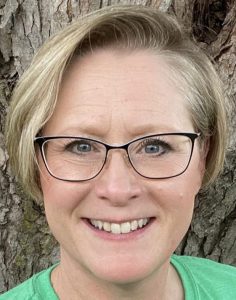
“I am a mom to special needs kids myself…being a parent to a special needs child can be a special kind of isolation and hurt.”
She said another mom asked her to start a support group for parents of special needs kids.
“Throughout the spring of this year, I hosted a few meetings for special needs parents in the area, just as a personal service to the community,” Walrod said.
Walrod began a new job as a community health worker for K-State Research and Extension Southwind District on August 1.
The Community Health Worker project has received funding and support from K-State 105, Kansas State University’s economic growth and advancement initiative for all 105 counties in Kansas. Learn more at k-state.edu/105.
“Since I am part of the community of parents of special needs children myself and support groups fit in the role of a CHW, the timing was perfect to form this group officially.”
The first meeting will be September 13 from 5-7 p.m. at the Splash Pad and Gathering Pavilion at North National Avenue and Old Fort Blvd. on Fort Scott’s north end. It is a come-and-go event opportunity to connect with other parents of special needs children.
Bring your kids, lawn chairs, snacks, and water to drink, she said.
Kansas State University Agricultural Experiment Station and Cooperative Extension Service
K-State Research and Extension is an equal opportunity provider and employer. Issued in furtherance of Cooperative Extension work, acts of May 8 and June 30, 1914, in cooperation with the U.S. Department of Agriculture, Director of K-State Research and Extension, Kansas State University, County Extension Councils, Extension Districts.
Gaining Control Of Your Budget

Budgeting is a critical skill that builds healthy financial behaviors and habits. Establishing financial goals that are important to you and writing them down sparks a commitment to achieving those goals. A budget can help you decide what you must spend money on each month and also if you can spend less money on some items and more other. A budget shows you how much money you make as well as how much and where you spend your money. While budgeting can be intimidating, it’s possible to have confidence in your budget, even in uncertain times.
Knowing where your money goes each month and writing it down has been found to improve financial confidence. A bill calendar is a tool that can provide a monthly visual reminder of when bills are due, how much you owe, and to whom. Taking it one step further, you can add your sources of income to the calendar to compare when amounts are due and when you receive income to cover those expenses. This is a similar process to a cash flow budget. If you have more bills than income in a given week, consider asking to change the due dates of those bills to better align with your income. You can create a bill calendar multiple ways, including electronically or even with a pocket calendar that can easily be carried with you. You can find an example of a bill calendar at https://bit.ly/3LhdrZy.
Another suggestion on gaining control of your monthly budget is to create spending categories and only spending on items that matter the most help to identify your spending habits. Make a list of your wants/needs/ and personal values. You can still save for and spend money on things that align with personal values but by following your budget based on your values, you are more likely to feel happier and more satisfied with your purchase decisions.
Make the most of your “monthlies” that recurred each month. Make a list of each of your monthly subscriptions that are automatically withdrawn each month and decide if there is anything you are willing to put on hold. Tips: Search your email inbox for recurring receipts, check for recurring payments and auto draft in your bank statements, and remember to look for quarterly and annual charges- not just monthly!
Another popular approach to budgeting in the 50/30/20 Rule. 50% of your monthly income is allotted to your essential needs, such as housing, utilities, groceries, transportation, insurance and minimum loan payments. 30% of your income is allotted to your wants, such as dining out, entertainment, hobbies, etc. The remaining 20% is set back for savings and personal investments. A budget ensures that you have an emergency fund to fall back on and allows you to prevent relying on accruing more credit card debt in hard times.
Discover how quickly you can become debt free, and how much you can save in interest costs by following a debt reduction plan. PowerPay is an online platform that will give you the tools to develop a personalized, self-directed debt elimination plan. Utah State University Extension is pleased to provide this debt management tool without any cost to consumers worldwide. Create your personalized debt reduction plan online at https://extension.usu.edu/powerpay/.
For More information, contact Community Vitality Agent, Amanda Clasen at [email protected] or at 620-244-3826.
Southwind Extension District 4-H Members Sweep State 4-H Contests at Kansas Livestock Sweepstakes
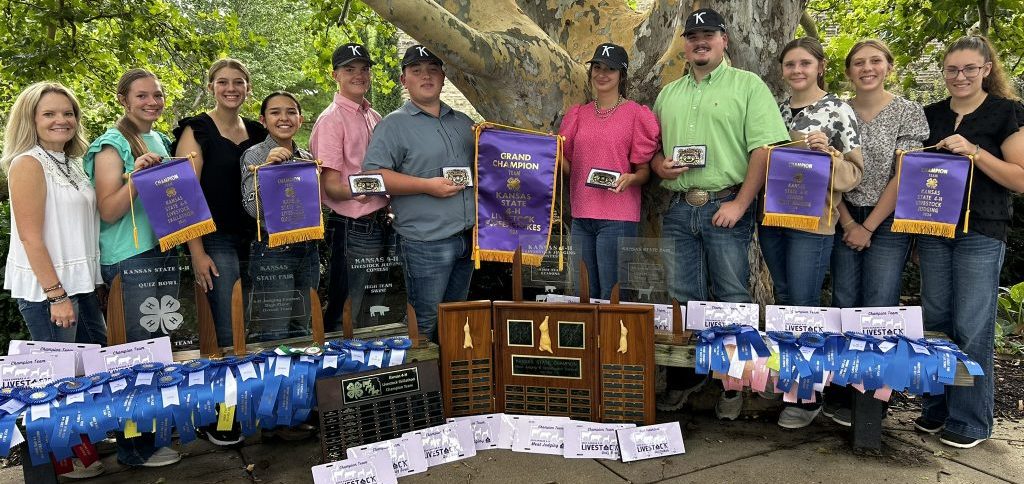
Now is the Time to Plant Fall Gardens

Although many gardens are still producing, it is time to get our fall vegetables planted. Believe it or not, fall is a great gardening season!
When you think about it, fall weather is much like spring – warm daytime temperatures and cool nights. Rainfall is typically more abundant in the fall than summer so less irrigation is needed and fall gardens often have fewer insect pest and disease problems. Combine all of these and you have the ingredients for a great garden! And of most importance is the taste of the produce grown. Flavors of fall grown vegetables are often sweeter and milder in taste than those grown during hot summer weather.
Some of the best vegetables for a fall garden are lettuce, spinach, radishes, beets, cabbage, turnips and carrots because of their frost-tolerance. These vegetables can be planted directly into your garden wherever space can be found – next to plants still growing in the garden like tomatoes, cucumbers and pumpkins. Plant mid-August until the first week of September.
Left over seed from spring planting can be used as long as it was stored in a cool, dry location. To speed up germination and seedling emergence, soak the seeds overnight before planting. If you are purchasing new seed, look for the shortest season cultivars that you can find to insure harvest before a killing frost. The average fall freeze date for our area is around October 24 according to the Weather Data Library on the K-State campus.
Sometimes establishing a fall garden can be difficult during the summer when soil temperatures are extremely high. One way to avoid this is to establish plants in containers or pots for transplanting into the garden later in the season when the weather begins to cool. Cabbage, broccoli, cauliflower, and collards can be grown in cooler protected areas for 2-4 weeks prior to setting in the garden. Be sure to acclimatize crops for several days before transplanting directly into the garden.
Garden soil should be prepared just like for spring. An application of fertilizer will probably be necessary for optimum plant growth. Use one pound of a complete analysis fertilizer, such as 12-12-12, applied per 100 square feet of garden area. Weeds and grasses will also grow well in a fall garden so mulching may be warranted.
If you do not have a traditional garden space, think about doing a container garden. Just about anything that will hold soil and have a drain hole in the bottom can be used.
Everyone gets geared up to plant vegetables in the spring, but the fall season offers many benefits to gardening. Few take advantage of the season, but consider giving it a try this year.
The Extension office has the “Vegetable Garden Planting Guide” publication available free of charge. This guide offers information such as days to first harvest, days to germination, planting depth, frost resistance, and more.
Krista Harding is a K-State Research and Extension Horticulture agent assigned to Southwind District. She may be reached at [email protected] or 620-244-3826.
K-State Research and Extension is an equal opportunity provider and employer.
Starlite FCE Minutes August. 2024
Fall Harvest is Here- Harvest Efficiency is Important
This year has been a challenging year for crop production, especially corn, with above-average temperatures and below-average rainfall. Some fields will have a very limited yield, but regardless of the reduced yield, we need to be prepared to minimize yield losses that can occur during harvest operations.
Harvest inefficiency reduces overall yield and can cause future problems because of volunteer corn. Volunteer corn may have some value by increasing the soil organic matter, providing cover to reduce soil erosion, or providing potential forage for grazing livestock. However, volunteer corn may cause problems for wheat planting after corn harvest, or in a wheat-corn-fallow cropping system by using valuable soil moisture and nutrients needed to promote fall tillering in wheat. Volunteer corn can also provide a “green bridge” of vegetation for insects that can carry viral diseases in wheat.
Several factors may contribute to poor harvest efficiency in corn. Most of the kernel loss that occurs at harvest time is due to mechanical limitations with combine settings. A combine performs three major actions during the harvest operation: picking, threshing, and cleaning. Grain loss can occur at each of these stages. A detailed description of harvesting efficiency can be found in the KSRE publication “Corn Production Handbook” beginning on page 36. The Handbook is available online at https://www.bookstore.ksre.ksu.edu/pubs/c560.pdf. A detailed article on reducing grain loss with proper combine settings will be in next week’s eUpdate.
Yield loss estimates are made by counting the number of kernels per square foot and dividing by 2 (Figure 3). The number of kernels per square foot is approximately twice the bushels per acre lost. To estimate the yield loss, count the number of kernels in a square foot, and divide by 2 (or multiple by 0.5). For example, a count of 20 kernels per square foot would indicate 10 bu/acre lost during harvest.
While it may be time-consuming to count kernels over a large area, it is important to get a good estimate of yield loss by counting kernels and ears from several locations in the field, and also including both header and thresher losses. Changes can then be made in the harvest operation and to the combine to improve the harvest efficiency. It is also important to check for field losses at different times of the day when harvesting and on different fields. Changes in weather conditions (moisture and temperature) or other factors may impact harvest efficiency.
While harvest efficiency will never be 100% and it is important to complete the harvest in a timely fashion, paying attention to details during harvest can increase profitability. A normal harvest loss rate to aim for is 1 to 2%. Careful attention to equipment, harvest conditions, and harvest operations can minimize yield losses at harvest time and put more corn in the bin.
There is a free mobile app from Ag PhD available to estimate harvest losses based on the kernel count per square foot. The download link is here: iOS. The app allows the user to select the crop and input the number of seed or kernels counted from an area on the ground. Harvest loss is calculated from this count.
Additional information is available in the KSRE publication “Corn Production Handbook” (https://www.bookstore.ksre.ksu.edu/pubs/c560.pdf).
Lonnie Mengarelli is a K-State Research and Extension Crops and Natural Resources agent assigned to Southwind District. He may be reached at [email protected] or 620-223-3720
K-State Research and Extension is an equal opportunity provider and employer
Helping Youth to Become Active Participants in Learning
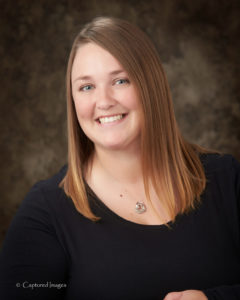
Engaging Youth
Getting back into the school routine can be a struggle for youth after having so much free time over the summer months. Teachers have quite a challenge at the start of school to get youth engaged in learning. It is important to know that engagement in learning should take place in all activities not just in school. When youth are engaged they are excited about learning.
Most young people gain learning experiences from school or forms of work, many lack the exposure to additional opportunities that will help master skills relevant to being competitive in today’s world. Youth who are involved in the learning process and given opportunities to successfully meet challenges and solve problems are more likely to develop self-confidence and feel they are capable of succeeding. The process of “discovery” of knowledge and finding solutions helps to build competence and confidence.
A 4-H Club is where engagement in learning can be seen. The club typically consists of members of various ages, backgrounds, and abilities. They work together, plan activities and clearly enjoy being together and being involved, especially with community service projects. The members grow and mature as they plan and lead organizational activities and events. Many, by choice, become leaders of the group. The Community Club Leader is the supportive key to the Club by providing youth opportunities where youth are intellectually stimulated and challenged, help youth design real projects that make a difference to others, and create experiences with youth that relate to real life situations.
In 4-H, experiential learning allows youth to learn by being active participants in their own learning. Experiential learning takes “hands on” learning a step further by adults providing opportunities for discussion and reflection that help youth understand how to apply what they learned to everyday situations in their own lives. This allows youth to be at the center of the learning.
With school quickly approaching, it is important to think of ways to keep youth engaged in learning to allow for the best possible learning experiences. Youth need exposure to activities outside of school to gain more experiences. There are a variety of organizations for youth to be a part of in the community. Encourage youth to be involved!
For more information about Positive Youth Development or 4-H, contact Jennifer K. Terrell, District 4-H Youth Development Agent with the Southwind Extension District – Fort Scott Office at 620-223-3720 or [email protected].
Power In Daily Rituals

Power in Daily Rituals
When you think of rituals, you might imagine spiritual ceremonies or sports superstitions. Major events like weddings or funerals also come to mind. While these are classic examples, rituals are present in your everyday life. Research has found that rituals often reduce anxiety and in turn help performance.
We can think of rituals as routines that have special meaning. The repetitive action of brushing your teeth day and night may be a mundane routine, but maybe there is something else in your repeated habits that you can add some emotion to. Author, Michael Norton states that it then moves a task from just getting the job done to more how you complete it and how you feel about it.
You already have daily routines. By adopting the right mindset, you can turn some of these routines into positive rituals. These rituals can help you stay focused, motivated, and inspired, ultimately aiding you in achieving your goals.
So how do you add intention and purpose to a routine and make it into a daily ritual?
- Part of it is about noticing what you already do. Think about your morning—what do you do? When you get to work, what do you do? What special things do you and your spouse do together? What special things does your family do with your kids? These are all rituals, even if you don’t realize it. When you do them on purpose, they can mean more to you.
- Reframe what you are doing, for example my weekly trip to the grocery store doesn’t have to be a drudgery, I can think about it as fueling my family for success!
- Start small, pick one routine you want to add intention to and evolve into a ritual.
Over the past year, I’ve transformed my morning coffee routine from a groggy, half-asleep process into a cherished ritual. Now, I enjoy quiet time with coffee followed by exercise, making it a part of my day that I truly look forward to!
What will you start with? For more information contact Tara Solomon-Smith, [email protected], or call 620-244-3826.
# # #
Kansas State University Agricultural Experiment Station and Cooperative Extension Service


